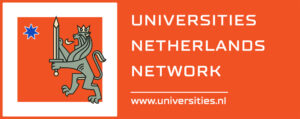Introduction
Eindhoven University of Technology (Technische Universiteit Eindhoven, TU/e), founded in 1956, is a premier technical university in Eindhoven, Netherlands, renowned for its cutting-edge research in engineering, technology, and innovation. Located in the heart of the Brainport region, Europe’s leading tech hub, TU/e drives advancements in high-tech systems, sustainable energy, and data science. With approximately 13,000 students, including over 3,000 international students, and a consistent ranking among the top 150 universities globally, TU/e is a powerhouse of technological innovation. This presentation explores its history, academic programs, and key highlights that define its global impact.
Historical Background
Established on June 23, 1956, as the Technische Hogeschool Eindhoven by the Dutch government and industry leaders, TU/e was created to meet the demand for skilled engineers in the post-war industrial boom. It gained full university status in 1986, becoming Technische Universiteit Eindhoven. The university’s motto, Where Innovation Starts, reflects its commitment to pioneering technological solutions.
TU/e has grown alongside Eindhoven’s transformation into a global tech hub, driven by companies like Philips and ASML. Despite its relatively young age, the university has produced influential alumni, including computer scientist Edsger Dijkstra, known for Dijkstra’s algorithm, and leaders in industries like semiconductors and sustainable energy. TU/e’s legacy lies in its contributions to high-tech systems, AI, and green technologies.
Academic Programs
TU/e offers over 50 programs across nine departments: Built Environment, Biomedical Engineering, Electrical Engineering, Industrial Design, Chemical Engineering and Chemistry, Mechanical Engineering, Applied Physics, Mathematics and Computer Science, and Industrial Engineering & Innovation Sciences. With most programs taught in English, TU/e attracts a global student body. Its challenge-based learning model integrates research, industry collaboration, and real-world problem-solving.
Bachelor’s Programs
-
Mechanical Engineering: This three-year, English-taught program covers mechanics, energy systems, and manufacturing. Students work on projects like designing sustainable vehicles, preparing for careers in automotive, aerospace, or energy sectors.
-
Data Science: A joint program with Tilburg University, this bachelor’s combines data analytics, machine learning, and business applications. Students tackle real-world datasets, preparing for roles in tech, finance, or research.
-
Industrial Design: This program focuses on designing smart, user-centered products and systems. Students use TU/e’s design labs to create prototypes, preparing for careers in product development or innovation consultancy.
Master’s and PhD Programs
-
Artificial Intelligence and Engineering Systems: This two-year master’s explores AI applications in robotics, healthcare, and logistics. Students collaborate with TU/e’s AI Institute, preparing for roles in tech industries or academia.
-
Sustainable Energy Technology: This program focuses on renewable energy solutions like solar, wind, and hydrogen. Students work on projects with industry partners like Shell, preparing for careers in energy transition or policy.
-
Innovation Management: This master’s examines technology-driven business strategies and entrepreneurship. Students collaborate with Brainport companies like NXP, preparing for roles in management or startups.
-
Research Master’s and PhD: Programs like Systems and Control and Photonics train students for cutting-edge research. The Eindhoven School of Innovation Sciences and High-Tech Systems Center support projects in AI, semiconductors, and sustainable technologies.
Faculty and Research
TU/e’s research is organized around strategic areas like Health, Energy, and Smart Mobility. Its institutes, such as the Eindhoven Artificial Intelligence Systems Institute (EAISI) and the Institute for Complex Molecular Systems (ICMS), lead global innovation. Faculty include renowned scholars like AI expert Carlo van de Weijer and photonics researcher Andrea Fiore, whose work shapes industry and policy.
Highlights
Global Rankings and Research Impact
-
TU/e ranks among the top 150 universities worldwide (QS World University Rankings 2026: #=120; ARWU 2024: #=201-300). It produces over 4,500 academic publications annually, with high citation impact in engineering, computer science, and physics.
-
The university secures significant funding, including 6 European Research Council (ERC) grants in 2024 and multiple Vidi and Vici awards from the Dutch Research Council (NWO).
Internationalization
With students from over 80 countries and partnerships with 150+ universities, TU/e fosters a global academic community. English-taught programs and exchange agreements with institutions like Stanford and ETH Zurich enhance mobility. The International Student Association Eindhoven (ISAE) organizes hackathons, cultural events, and career fairs to support integration.
Student Life and Facilities
-
Study Associations: Groups like Thor (Electrical Engineering) and Lucid (Industrial Design) host workshops, industry visits, and social events. Thor, for example, organizes robotics competitions and networking with companies like ASML.
-
Campus and Resources: TU/e’s modern campus features advanced facilities, including the Atlas Building, Flux Building for engineering labs, and the TU/e Library, a hub for technical research. The Hub sports and culture center offers activities like 3D printing and martial arts.
-
Housing and Support: TU/e assists international students with housing through partners like Vestide. Scholarships, such as the Holland Scholarship and TU/e Talent Scholarship, support non-EU/EEA students from countries like India, China, and Brazil.
Innovation and Industry Ties
TU/e is at the core of the Brainport Eindhoven region, collaborating with tech giants like Philips, ASML, and NXP. The Eindhoven Startup Alliance and High Tech Campus support over 200 startups in AI, photonics, and health tech. TU/e’s Innovation Space fosters student-led projects like solar cars and medical devices, competing internationally.
Historical and Cultural Heritage
The TU/e History Lab preserves artifacts from its founding, including early computing equipment, supporting research in the history of technology. The campus’s modern architecture, like the iconic MetaForum, reflects its forward-thinking ethos while honoring its industrial roots.
Practical Learning
TU/e’s challenge-based learning model emphasizes hands-on projects, internships, and industry collaboration. The Artificial Intelligence master’s includes projects with companies like KLM, while Sustainable Energy Technology students design renewable systems with partners like Vattenfall. The university leverages Brainport’s ecosystem for real-world impact.
Conclusion
Eindhoven University of Technology blends a dynamic 60-year legacy with a bold vision for technological innovation. Its programs, from Mechanical Engineering to Artificial Intelligence, equip students to tackle global challenges in technology and sustainability. With world-class research, a vibrant international community, and a cutting-edge campus in the Brainport region, TU/e offers an unparalleled academic experience. Whether drawn to its industry ties, innovative education, or entrepreneurial spirit, TU/e is truly where innovation starts.
